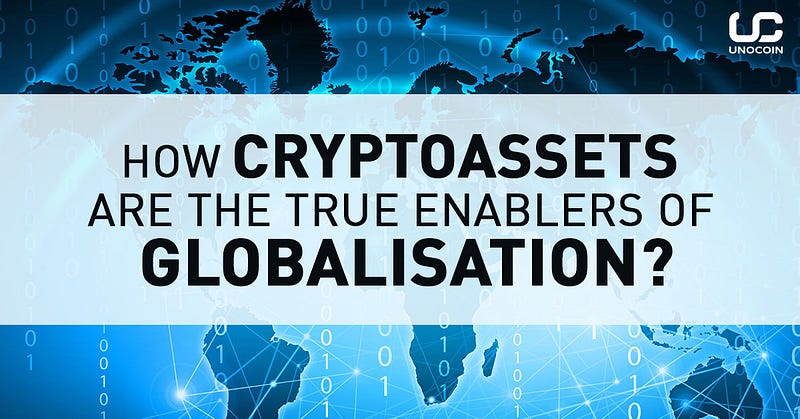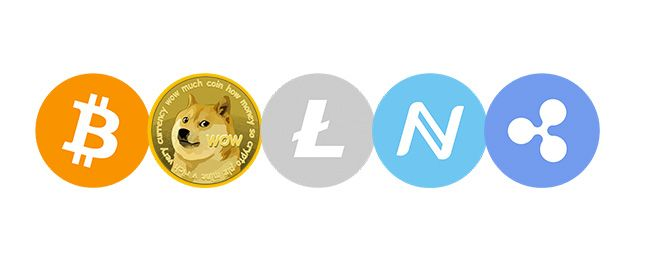
The evolution of cryptoassets has been fascinating. Within a span of only five years, hundreds of cryptoassets have emerged from the Internet following the release of the original Bitcoin protocol. Cryptoassets are still affecting the world economy, even if they do not become a medium of exchange that everyone uses or understands.
Here are a few factors that have enabled cryptoassets to help accelerate globalisation:
Here are a few factors that have enabled cryptoassets to help accelerate globalisation:
- Payments across the globe without paperwork
The zone with the biggest potential for the digital assets lies with international remittances: money sent home by workers living abroad. This money had to be handled by several intermediaries: banks, wire services, and asset exchanges and each one took their cut. A recent report by Businessweek showed that the average fee for remittances was 9% of the money transferred, with conversion to cash often costing an extra 5%. Migrant workers (or businesses operating on their behalf) now use these services to cut down on the transaction costs and transfer money without the hassle of extensive paperwork etc.
While this was one major aspect of money transfer, another lies with the unbanked:
“The majority of the planet don’t even own a bank account,” Bitcoin enthusiast Jonathan Mohan tells PBS Newshour. “We sometimes forget that there are many countries where you can’t take a credit card payment. Those countries become isolated from the rest of the Internet economy.”
Also, it is possible to make an international payment using cryptoassets with no risk of credit card fraud.
2. Near instant transfers
Today, every international transaction involves a use of one form or another of virtual currency or credit. Digital currencies are making transactions more secure and more immediate, that can unlock value for everyone, including some of the companies that currently benefit from the high barrier of entry to traditional banking.
Transaction and exchange fees, taxes, and payment delays exist to provide short-term credit, guard against counterfeit, excessive withdrawals and other kinds of fraud, and to extract income. Cryptoassets are designed to provide the same security guarantees and convenience of credit, while foregoing its extra processing times and fees.
The best part is that settlement can be made immediately, just as the case with cash. Unlike a credit card exchange, where your credit card number and security information are handed over completely for any transaction, a transfer is authorized only to pay a specific amount.
In principle, the decentralised nature of cryptoassets make them more stable than traditional assets. However, the value of these assets is also subject to fluctuations over a period of time.
There are several services like Bitpay that also convert digital assets into various local assets as required. These companies generally do not charge a fee per transaction but rather a nominal monthly fee.

3. Decentralized value of cryptoassets
The fact that cryptoassets are decentralized is of great interest to all the users. But more so, for the countries whose local currencies are not doing so well. Since the value of these currencies is not unaffected by the local governance, it provides an opportunity for the people to have a stable currency which is at par across the globe. (Though, there are small differences in prices of cryptoassets in different countries.) The people of different nations are able to make trade on a fair basis and the value of a product is not lost in currency conversion.
With governments’ financial and credit troubles in turn causing major problems for their currencies, global investors are looking for something firmer than the promise of a central bank.
4. Accounting for a larger population
A research paper published by the Institute for Liberty and Democracy (ILD), has ascertained that over 5 billion people — out of 7.3 billion around the world — are not documented in national ledgers. Their assets are not recorded in a way that is easy to compare, measure or mix on an international scale. Instead, their entrepreneurial talents and legal rights to assets are recorded in hundreds of scattered records and rules systems throughout their countries, making them internationally inaccessible.
This created a lack of consolidated, documented knowledge — and not trade — which is the principal reason for global inequality. The lawyers and politicians who draft and enact the legislation and regulations that govern globalization are disconnected from those who are supposed to implement the policies at the local level, and those who actually write up and control the ledgers. In other words, the legal chain is missing a few crucial links.
What the digital assets essentially provide for is creating these broken links by their medium of a universal ledger that records every transaction that is carried out.
Also Read:
https://blog.unocoin.com/2017-was-the-year-of-bitcoin-943f9896eeaa



